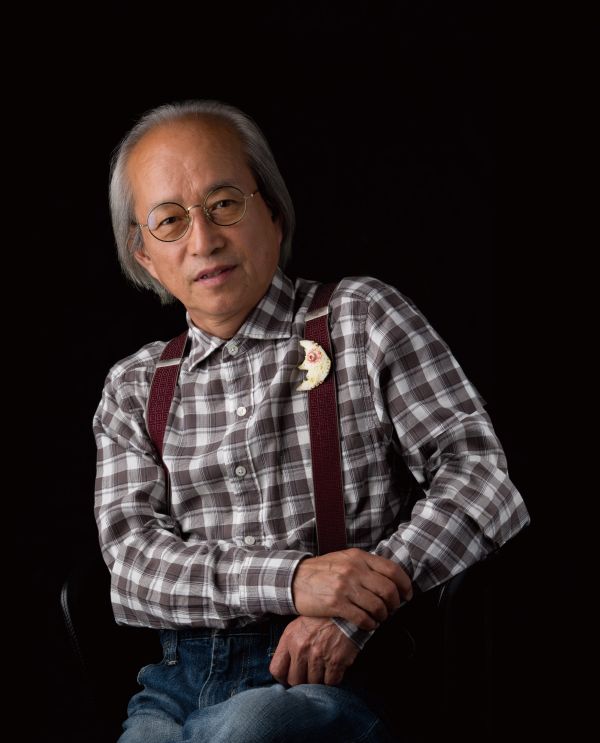Yamada Kazu was born in 1954 into a well-known family of potters from Tokoname, Aichi prefecture, one of the oldest pottery centres in Japan.
His father Yamada Kenkichi regularly exhibited at Nitten (The Japan Fine Arts Exhibition) and his uncle Yamada Jōzan was designated Important Intangible Cultural Property (Living National Treasure) in 1998.
Encounters with the leading ceramicists of post-war Japan from a young age shaped his career. In early years, he was influenced by a teacher at the Osaka University of Arts, Suzuki Osamu. Suzuki was one of the most representative ceramicists of post-war Japan, known for his unconventional sculptural forms. It was a flamboyant potter, Katō Tokuro, who became his long-term mentor until Katō's death in 1985. Katō's devotion to revive tea ceramics from the Momoyama period (1573-1615) with modern twists resonated with young Yamada. Following Katō's advice, he moved to Fukui prefecture to set up his first kiln in 1976. Katō's philosophy of modern creativity built upon traditions remains one of the central themes to Yamada today.
Yamada san has work in several museums worldwide including enbu shino and oribe teawares in the Victoria & Albert Museum in London.
Yamada san has a multi-faceted ceramics personality. His work spans several different creative personalities with a respect for, but also in challenge of tradition in terms of established decorative aspects, form and function. His work is so accomplished that he has several signatures that are truly unique to his unending creativity. In an environment where to have one truly original signature style is impressive, Yamada san manages many. The Stratford Gallery is extremely proud to represent his work in the UK.
